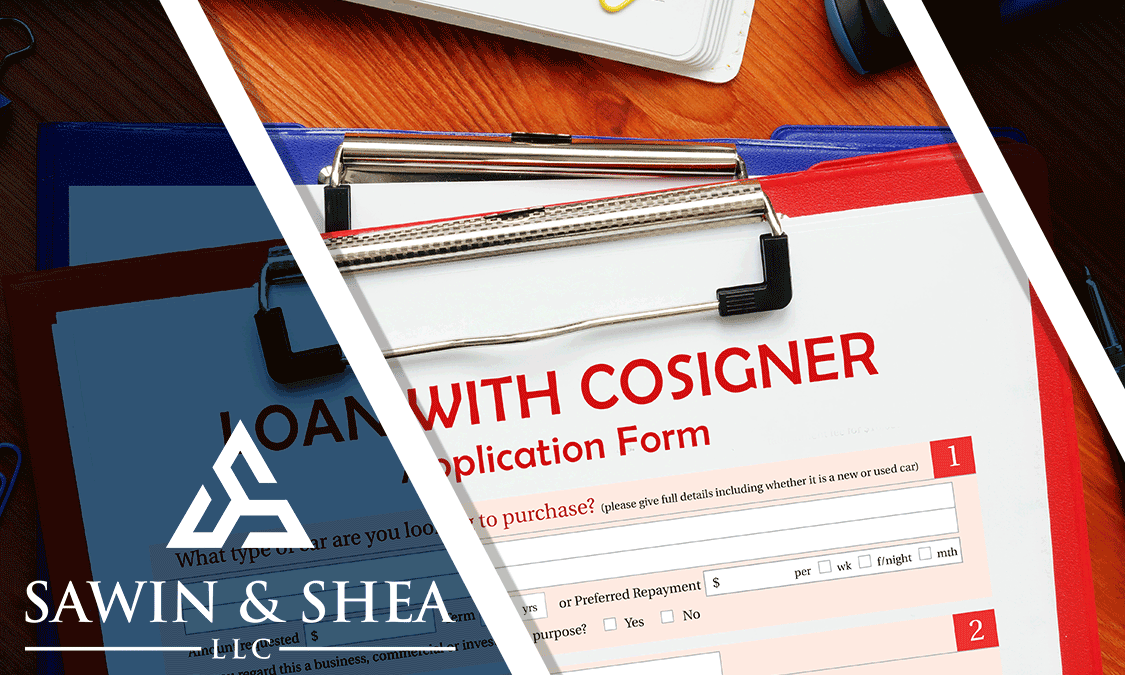Co-signers are beneficial for those seeking to obtain loans and credit cards. The primary advantage of having a responsible co-signer is that it will increase your chances of receiving credit approval. Additionally, having a co-signer may enable you to secure more favorable interest rates. If you have a co-signer associated with your debt or if you are a co-signer, you need to be aware of how financial liability works and what happens when the primary debtor declares bankruptcy. Fortunately, in this blog, we’ll unpack cosigner responsibilities when it comes to bankruptcy and debt.
Obtaining Personal Loans with a Cosigner
Having a co-signer on a personal loan or credit card means that you associate another individual with your debt. The cosigner responsibilities include taking on the responsibility of the debt if the primary borrower is unable to make payments.

It’s often necessary for risky or low-credit borrowers to have a co-signer in order to secure a loan or another form of debt. When a borrower applies for a loan or credit card, the lender will assess their creditworthiness by looking at their income, credit score, and debt-to-income ratio. If the lender is concerned about the borrower’s ability to repay the debt, they may require a co-signer.
If the borrower misses any loan or credit card payments, the co-signer is legally obligated to make the payments on the primary borrower’s behalf. If the borrower is behind on payments, the lender can pursue financial recourse against both the debtor and the co-signer, also often called a co-debtor. Additionally, if a borrower defaults on a debt, it can negatively impact the co-signer’s credit score.
Although there are risks associated with being a co-signer, the practice is incredibly common. For example, a parent or another family member may become a co-signer for a low-credit borrower so that the primary debtor can obtain a desirable loan. Plus, being a co-signer can help a debtor build credit.
What’s a Guarantor?
While guarantors and cosigners share some similarities in that they both provide financial backing to a borrower, there are some key differences between the two roles.
A guarantor is typically someone who agrees to pay back a loan in the event that the borrower defaults on their payments. The guarantor may be required to provide collateral or security to the lender to reduce the risk of the loan.
Unlike with cosigner responsibilities, a guarantor’s responsibility is usually limited to a specific amount or time period, as outlined in the terms of the loan agreement. A guarantor is agreeing to act as a backup plan for the lender if the borrower fails to meet their obligations.
Cosigner Responsibilities: Bankruptcy and Debt Collection
If a primary borrower declares bankruptcy, the co-signer associated with the debt may be responsible to pay back creditors, but this will depend on the type of bankruptcy that the primary debtor filed.
Cosigners and Chapter 7 Bankruptcy
Chapter 7 is a form of bankruptcy that allows individuals to discharge most unsecured debts, such as credit card debt or medical bills, without having to repay them. Unfortunately, the co-signer may still be financially responsible for a debt even after the primary borrower discharges it.
The bankruptcy filer gets immediate protection called an automatic stay, meaning that creditors cannot pursue legal action or debt collection against the borrower, but with Chapter 7 bankruptcy, the automatic stay does NOT extend to the co-signer. Creditors can pursue reimbursement from the co-signer via repossessions, foreclosures, wage garnishment, and other aggressive actions.
One way that a Chapter 7 bankruptcy filer can avoid making their co-signer financially liable is by reaffirming their debt. For example, if a debtor wishes to discharge their credit card debt but doesn’t want to make a co-signer financially liable for a personal loan, they can reaffirm their intent to repay the loan. They can discharge their other eligible debts while also taking financial responsibility for their personal loan.
Cosigners and Chapter 13 Bankruptcy



Filing Chapter 13 bankruptcy allows individuals with regular income to consolidate their debts and repay them over a period of three to five years. Under Chapter 13, the debtor must submit a repayment plan to the bankruptcy court for approval, which outlines how they will repay their debts and may involve reduced or extended payment terms.
Unlike Chapter 7, filing Chapter 13 offers protections for co-signers. Those filing for Chapter 13 get an automatic stay, and co-signers receive a “co-debtor stay,” meaning that creditors cannot pursue action against the co-signer. For the co-signer to receive this protection, the primary debtor needs to include their co-signed debt within their three to five-year repayment plan.
For example, if you co-signed a friend’s loan, your friend needs to repay that debt within their three- to five-year repayment plan. If the repayment plan doesn’t include the loan, you’re still liable for the debt and the lender can seek reimbursement.
Considering Filing for Bankruptcy? Contact Our Experienced Bankruptcy Legal Team
Declaring bankruptcy can be an incredibly complex process, and it’s critical to find the best filing method for your unique financial situation. Fortunately, you don’t need to file alone — you can enlist the experience and dedication of our Indiana Chapter 7 and Chapter 13 bankruptcy attorneys. We’ll help you navigate the often-confusing filing process and ensure that you’re on the right path to getting your finances back on track.
You can schedule a FREE consultation with one of our bankruptcy attorneys online or by calling 317-759-1483.



